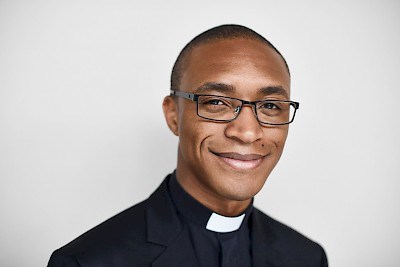
Does one tweet deserve that much fuss?
February 9, 2021
Living in Disapproval and Dogma
February 24, 2021In recent weeks we have seen much in the ecclesiastical and secular Press about the parlous state of the Church of England, in terms of both numbers of worshippers and finances, and the way in which this has been made critically worse by the impact of the pandemic.
We may well feel that this is not the whole story, and remember that such predictions have been periodically made from the beginning of the 19th century (Thomas Arnold’s “The Church, as it now stands, no human power can save”) right up to that fear expressed a few decades ago that the Church would have died out by 2016! But we are now in what feels like an exceptionally apocalyptic time; the Church has survived and recovered through many wars and other dramatic events in human history, but is this one different? With the impact of climate change overshadowing even that of Covid-19, the future of the human race, let alone the Church, seems called into question as rarely before.
The conventional wisdom in Church House is that the Church must indeed survive, and grow, and that various techniques – often mirroring those deployed in the world of business – must be applied to that end. Those techniques themselves rest on sociological assumptions (notably that of “a post-Christian society”) which have been questioned by such as Modern Church’s former President Linda Woodhead, and by many others such as Martyn Percy and perhaps even, at Church House itself, Canon Sandra Millar. It is true that the world has changed dramatically in recent decades, not least with the movement of so much life “online” which has been accelerated by the pandemic. But has human nature changed? “Moving fast and breaking things” has been a slogan in the world of hi-tech, and increasingly also parts of the worlds of business and politics. “Creative destruction” has a place in human affairs. But sometimes it may just turn out to be destruction.
In our increasingly urbanised society (a trend which, however, the pandemic may help to reverse) a lot of people still live in rural areas. The Church is often, socially and spiritually, at its strongest in such areas – even when faced with ageing congregations and a shortage of clergy and money to pay for them. How can we value and build on that strength? Is it even worth doing so? The focus of the Church today, at national and Diocesan levels, seems to be increasingly on urban areas and new forms of ministry to new communities and groups currently largely untouched. This sounds right – but is it? Writers such as Andrew Davison and Alison Milbank, in their seminal For the Parish (2011), have raised fundamental concerns about a strategy based on church planting and “fresh expressions” which may weaken what they see as the genius of Anglicanism. When we look at the lives of some parishes, a few of which at least are visibly dying on their feet, that “genius” might well need a little questioning. But I repeat my doubt that “moving fast and breaking things” is the answer.
In my own Deanery, as I write, we face a situation in which a benefice of four parishes – all with very small congregations, but most with real spiritual health – faces the possibility that their “interim minister’s” licence will not be renewed; and this, slap in the middle of a pandemic when surely such enforced changes are a serious mistake. The Deanery, as required by the Diocese, struggles with developing a plan which will take both growth and decline into account, and necessarily so; but how do you plan for anything under current circumstances?
Some might say that all the Church can do is to allow for “organic” growth or decline – in other words, let nature take its course. That is surely healthier than imposing new plans from above which could “quench the smoking flax” of existing church life. But it could mean letting a few congregations hereabouts, frankly, die off.
Does that matter? At this point I turn from the sociological to the theological assumptions behind current conventional wisdom.
If you believe, as some Christians do, that all our fellow citizens are going to hell (however understood) in a handcart and only faith will save them, then the Church is desperately needed as a vehicle for mission. More bums on pews means more people (actually or at least potentially) “saved from the wrath to come” and also able to contribute (financially and otherwise) to the saving of others around them. Keeping a parish going with a congregation of half a dozen ladies well over eighty – how much prejudice we see against the old these days! – in a mediaeval church costing thousands in upkeep makes no sense. Some bits of the rural Church may have to be abandoned in order to focus on more “profitable” mission elsewhere.
Even if your view of the Church’s mission is much less narrowly defined than this, there are still questions to be asked. Can those six old ladies maintain a meaningful “Christian presence” within a community, bringing the sort of healing and reconciliation which a more liberal Gospel might see as a central purpose of the Body of Christ? Perhaps they can; we just might be surprised. Perhaps they cannot, or at least not without some assistance from elsewhere which might or might not be “cost-effective”. Perhaps that church, even if it has historically been a vital part of the local community (especially for those who never attend it?), just has to be allowed to die – hopefully, with love.
And does that matter? Yes, it does. However we conceive of the purpose of the Church, it can hardly be denied that it is meant in one way or another to continue within every community the work of Jesus, in sacrificial love and reconciliation, with worship at its heart. If we really want to preserve this, then we need to address such painful questions as the insecurities of stipendiary clergy which have got in the way of the huge growth in non-stipendiary ministry which seems at this time to be required.
And yet, I cannot help being reminded of the words of Prime Minister Arthur Balfour, who saw enough change and decay in his time: “Nothing matters very much, and in the end nothing matters at all”. Suppose that the whole Church went the way of those six old ladies and their parish? It just could happen (though I very much doubt it). If, as John Robinson famously put it, the message of the Gospel is not just that Love ought to be at the heart of the universe but that it actually is, do we really believe that that would be the end of the line?
What is clear to me is this. Diktats from above are more likely to destroy than to create. Of course the Church needs to plan how to use its resources – people and money – and that may lead to some hard decisions. But such decisions are in grave danger of cutting across and wrecking what I have called the organic processes of church life. They can never really take account of those six old ladies who may be “redeeming” their village in ways which even their incumbent, let alone an Archdeacon, cannot see. Must we not, amidst all the needful planning of the Church as a human organisation, learn to be a little more open to the movement of the Holy Spirit in ways which may not correspond neatly to the one-size-fits-all imperative of Renewal and Reform?




4 Comments
Thank you for a seminal article , which asks the REAL questions. Top down is not going to work, nor outmoded business models. Anne Eyre
What about stipendiary clergy who (with PCC approval) continue to keep their churches closed, celebrate communion privately at home and thus deny access to both the church building and the sacraments. Are they assisting the demise of the church in their community? At Easter many will still be at home. Churches, public worship and the real world needs of the laity have become non essential.
The church will not die! For the church is Christ’s body on earth. The Church of England may well die. The two are separate and should not be confused. In response to the ‘half a dozen old ladies’, I have first hand experience of such a church of faithful, prayerful women who kept a church going, with the support of one of the largest churches in the diocese of Sheffield. It is now thriving, proclaiming the gospel in word and deed in one of the most deprived areas of Barnsley. Just another example of the Power of the gospel to change lives, and of the Holy Spirit at work in people’s lives.
“remember that such predictions have been periodically made from the beginning of the 19th century (Thomas Arnold’s “The Church, as it now stands, no human power can save”)”
Fair enough, but the current generation of Church authorities would salivate at anything like the levels of attendance and commitment evident in the early nineteenth century, judging by bishops’ registers and records of bishops’ and archdeacons’ visitations. Now is probably the absolute nadir of the Church, a situation arguably even worse than the ninth and tenth centuries. We probably have to go back to the eighth century for anything as bad, whether in relative or even absolute terms – and there is no end in sight.
““Creative destruction” has a place in human affairs. But sometimes it may just turn out to be destruction.” Indeed, for once a parish is wound up the local community invariably becomes totally unchurched, in my experience – even of the neighbouring church is a short distance down the road. There are already quite a few ‘dead zones’ where the light of Christ has been snuffed out altogether.
“When we look at the lives of some parishes, a few of which at least are visibly dying on their feet”. In my experience, the ‘few’ accounts for almost 99% of the total; about 5% had sufficient critical mass before lockdown, but that flatters to deceive, since most congregations are overwhelmingly elderly.
“And yet, I cannot help being reminded of the words of Prime Minister Arthur Balfour, who saw enough change and decay in his time: “Nothing matters very much, and in the end nothing matters at all”.” Unfortunately, AJB was a PM so ineffectual that he was described as being little more than a ‘scent on a pocket handkerchief’, and Churchill (an inveterate enemy) remarked “If you wanted nothing done, Arthur Balfour was the best man for the task. There was no equal to him.” (though Balfour put up quite a fight against Fenianism and for the House of Lords). If the welfare system breaks down in the next couple of decades because the immiserated rising generation cannot fund it and the next generation of DC retirees will soon outlive their savings, the parish is going to start mattering very much indeed, for material if not also spiritual reasons. There is a reason why the parish system is under such strain – yes, it was always going to come under much pressure as attendance declined, but the deeply regressive system of central/diocesan finance and the basic unaffordability of most of the stipendiaries have greatly accelerated the trend. The Church could easily retain its existing reach if the Commissioners were to do a deal with the government about the buildings, but this would entail the Commissioners surrendering a large portion of the capital they have effectively sequestered from the parishes, via the parish share system, over the last generation.